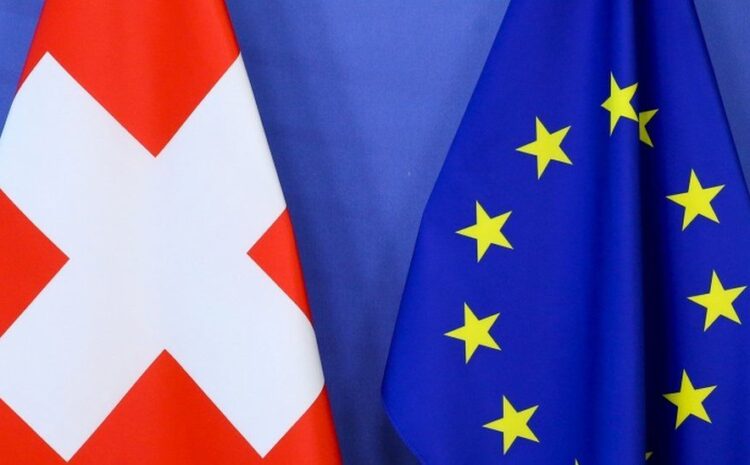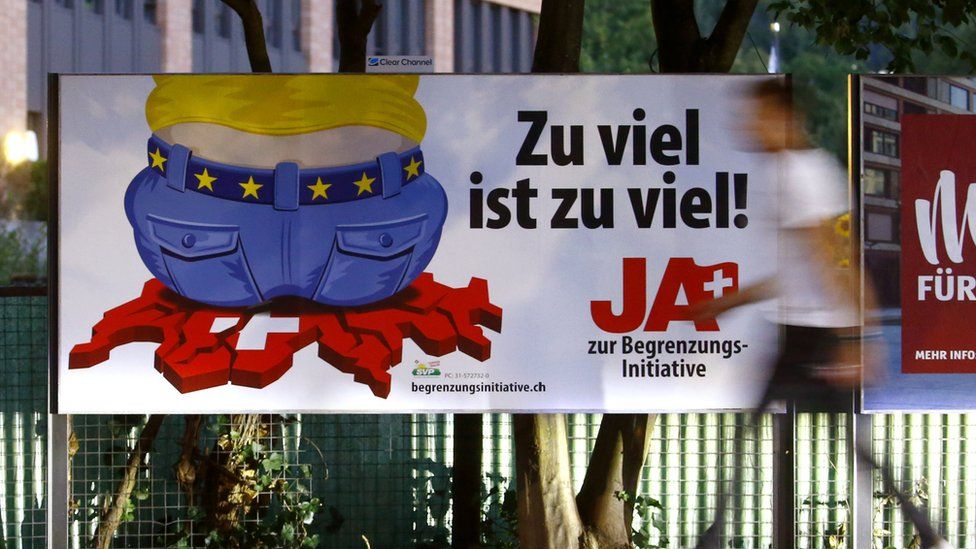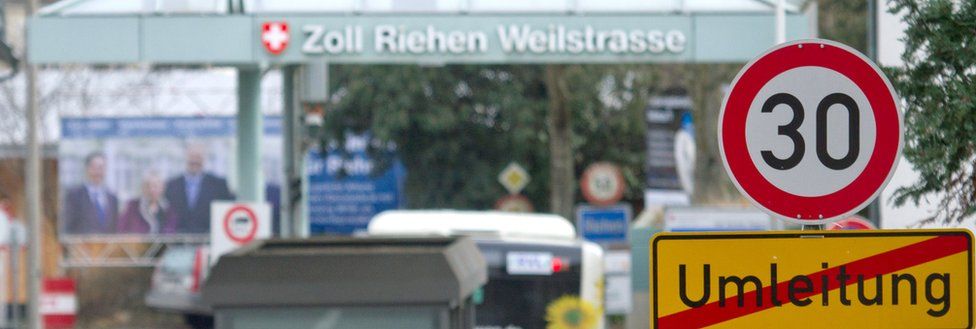
IMAGE COPYRIGHT REUTERS image caption The Swiss-EU trading relationship is governed by more than 120 deals
Switzerland is not in the European Union but has signed up to many of its policies, such as freedom of movement.
The relationship is currently governed by more than 120 bilateral deals, and a failure to replace them with one framework deal could harm ties.
“We regret this decision, given the progress that has been made over the last years,” the EU Commission said.
The EU-Switzerland free trade agreement dates back to 1972.
The Commission – the executive body for the EU’s 27 member states – said that without an EU-Swiss framework agreement, modernising that relationship would not be possible. Existing deals were “not up to speed” and the impact of Switzerland’s decision would have to be analysed, it warned.
What went wrong?
The Swiss government has highlighted three issues: protection of wages, rules governing state aid, and the right of EU citizens working in Switzerland to claim Swiss welfare benefits as part of freedom of movement.
Foreign Minister Ignazio Cassis said Switzerland could not accept EU demands for equal rights for EU workers as it would have meant an unwanted “paradigm shift” in Switzerland’s migration policy. The government also feared it could lead to higher social security costs.
However, one bilateral deal lapsed only this week on trade in medical technology products and the Swiss MedTech organisation said it would cost the industry 114m Swiss francs (£90m; €104m) and 75m every year afterwards.
 IMAGE COPYRIGHT REUTERS
IMAGE COPYRIGHT REUTERSWhat reaction has there been?
The right-wing Swiss People’s Party (SVP) welcomed the breakdown of talks as “a victory for Swiss self-determination”, while trade unions were also pleased as they had been concerned about the impact on wage protection and public services.
But most political parties in Switzerland were critical: Socialist party leader Roger Nordmann described it as “Black Wednesday”.
C’est un mercredi noir. pic.twitter.com/LD09LhoWgU
— Roger Nordmann (@NordmannRoger) May 26, 2021
Swiss confederation President Guy Parmelin rejected the term “Black Wednesday” and said he hoped for a fruitful “reset in our relations”, adding that the Switzerland and the EU remained first-class partners. Even without a treaty, it was in their shared interests to maintain their “proven bilateral approach”, he said.

Unlike the UK, which left the European Union without access to the single market or customs union, Switzerland is part of the single market as well as the EU’s Schengen passport-free zone.
The Bern government says 1.4 million EU citizens live in Switzerland and has promised to urge parliament to approve the release of CHF1.3bn (£1bn; $1.4bn) to the EU’s fund for poorer member states, which was frozen in 2019 and is is a key condition for Swiss membership of the single market.
Switzerland and the EU Timeline
 IMAGE COPYRIGHT GETTY IMAGES
IMAGE COPYRIGHT GETTY IMAGES1972: Free Trade Agreement
1992: Swiss vote narrowly against joining European Economic Area
1992-2002: Switzerland negotiates, then signs first bilateral agreements with EU – they are interdependent, and include free movement of people – backed by a vote in 2000. An overall framework agreement is proposed in 2002
2005: Swiss vote to join Europe’s Schengen open borders treaty and extend free movement to 10 new EU states
2014: Swiss narrowly back quotas on EU workers, angering the EU. Talks take place to formalise relations in a framework treaty
